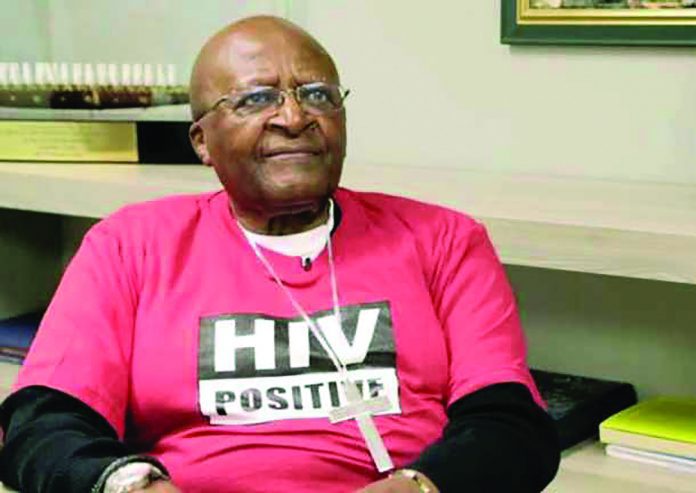Johannesburg- The Treatment Action Campaign (TAC), an HIV/Aids civil organization that campaigns for greater access to HIV treatment for those who are infected with the global epidemic, owes its very existence and survival to the late revered world icon Archbishop Emeritus Desmond Tutu.
Speaking to Sunday World this week, Mark Heywood, the TAC co-founder, recalled fondly that Tutu did not only leave an indelible mark and carved a permanent place in the hearts of many, but he saved the organization from being relegated to the archives of history.
“My last direct engagement with him was in 2013 when the Treatment Action Campaign was going through a very serious financial crisis that threatened to close it down,” said Heywood.
“Archbishop Tutu made a global appeal for funding. Although he was old, he was willing to step up and put on the HIV-positive T-shirt.”
Coincidentally, St George’s Cathedral in Cape Town, where the iconic spiritual leader and human rights campaigner’s mortal remains lay in state for two days before being cremated yesterday, also heralded the formation of TAC.
It was on the steps of the church on December 10 1998 where about 15 HIV activists protested and demanding medical treatment for people living with HIV that gave birth to the civil rights organization.
In its early years, the civil society movement butted heads with former president Thabo Mbeki on how his administration was dealing with the HIV crisis in the country.
Heywood said it was during this dark period of Aids denialism that the man with a trademark giggle helped destigmatize HIV.
“President Mbeki and leaders of the ANC publicly accused the TAC of being the agents of pharmaceutical companies, unpatriotic and traitors. Very few people in the ANC, if any, came to our defence,” he said.
“But Archbishop Tutu from the very beginning made it clear that he understood the threat of HIV and its connection to inequality and poverty.”
Another respected social justice and LGBTQI activist, Phumi Mtetwa, said the late Nobel Peace Prize recipient sought to embrace a people’s faith even if they were LGBTQI people, saying he fought relentlessly for the rights of gays and lesbians to be included in the Bill of Rights.
“Long before his daughter [Mpho] were to come out as lesbian and gay, the Arch stood firm and not only in South Africa, but globally, to say that his God will never be homophobic and that he will never go to a homophobic heaven,” said Mtetwa.
“That is very profound and significant when you think about how LGBTQI people are excluded, they experience hate crime. More importantly, [they are] being chucked out of churches.”
Winnie Byanyima, the executive director of UNAids, said of Tutu: “He was a leading light who brought global attention to injustice in a way few others could, and a champion for the rights of all people living with and affected by Aids. Millions are alive and free today because of the hope he brought to this world.”
The Desmond Tutu Health Foundation’s Robin Wood said of the Arch: “His interest and support lent his moral compass to counter institutional and political obstruction of care for those living with HIV.
“His personal suffering from tuberculosis fueled his interest in alleviating this scourge in South Africa. It continues to inspire us to work hard to solve these public health challenges.”
Also Read: Archbishop Tutu: Our gratitude knows no bounds
The Arch – sports greatest fan
Nurse shares story of how Archbishop Tutu changed her life
Look: World leaders remember Archbishop Desmond Tutu
To read more political news and views, click here.
Follow @SundayWorldZA on Twitter and @sundayworldza on Instagram, or like our Facebook Page, Sunday World, by clicking here for the latest breaking news in South Africa. To Subscribe to Sunday World, click here.



